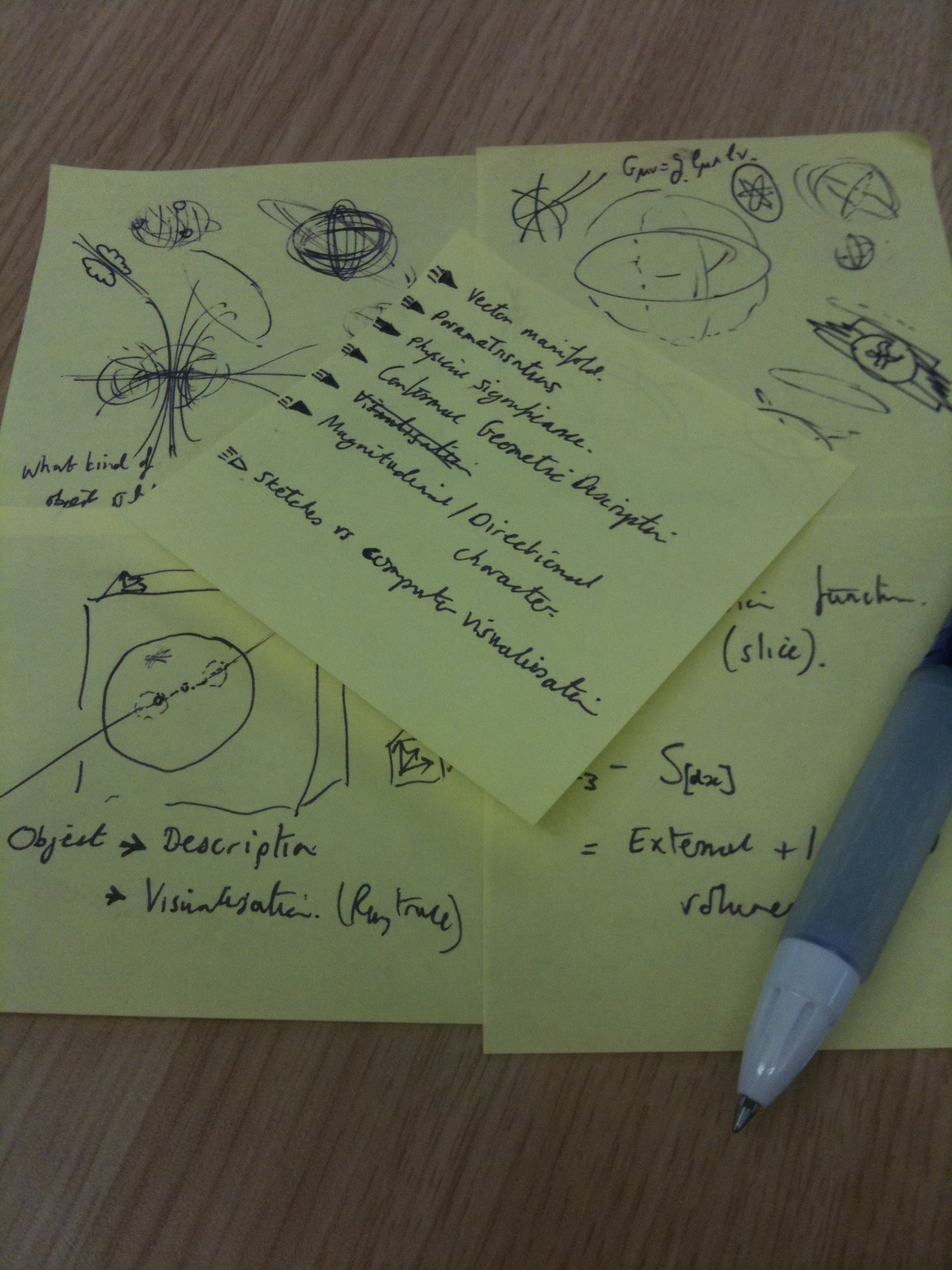I’ve been uncomfortable with the conclusion that special relativity clearly asserts that it is impossible to “go faster than the speed of light”. Actually, of course, it doesn’t. Most would allow for tachyonic solutions in which there exist states which correspond to particles travelling at super-luminal speeds. The problem is actually the 1/x, x->0 in the maths, which we try and explain as a problem of nature instead of a problem with our mathematical reasoning, and leads us to unresolvable considerations involving infinity.
From first principles if one starts with the notion that everyone should see light as travelling at the same speed, then a simple derivation naturally leads to the Lorentz transformation from which all of special relativity is constructed. Then we go on to see that that length contraction and time dilation must occur; a natural consequence of the transformation equation. And, we have to ask the question “how can a body have infinite mass”? Naturally we give up and say that it can’t and so it can’t happen.
However, isn’t our interpretation of the Lorentz transformation just a description of what it is that a stationary observer would observe? That is, as a body approaches the speed of light relative to the observer, that observer would interpret what they see as the body also carrying an increasing mass that rapidly asymptotes to infinity. But wait a minute, I cannot see anything in that that says that the body actually has infinite mass, it’s just how we interpret what we see. The implication of the fact that the speed of light is seen to travel at a fixed speed in all frames, is that there are observational implications due to us using light to observe things.
This problem with infinity is all an implication of the “approaching 1/0” in the maths; a limit for which we have no meaningful way of manipulating within the algebra. We take the view that the frame is Cartesian (i.e. flat), and then postulate that because no particle can actually attain infinite energy/infinite rest mass, that Lorentz must imply that no particle can travel faster than the speed of light.
I’m not so sure.
Imagine two observers, and set up a constant acceleration between the two. Pick one, that’s you. You watch as the other one’s velocity gradually rises, and approaches the speed of light. Because of the flat-space-time axiom you’ll always be able to see them, if your telescope is powerful enough that is, and you’ll also observe that their mass increases also, so that they appear to be asymptotically approaching the the speed of light but never able to get there. You’ll observe them in conjunction with the singularity in the maths.
Now imagine the other one. Don’t they just define themselves as being stationary? And, it’s you thats getting heavier and so on. It’s all an observational effect. They’re just moseying along in their (very slightly accelerated) rest frame, and all the action is happening to you, not them. It’s an observational effect.
Ok, so one argument to that picture is “Ahha! We’ve got an accelerating frame, and so special relativity doesn’t count any more”. Fine then, let’s evoke general relativity to explain what’s going on. Now we have the problem that it isn’t meaningful to make comparisons between the the two different reference frames any more, as we have the problem of how to “parallel transport” the velocity vectors from one frame to the other in order to make meaningful statements about relative velocity. We can postulate that the space/time is flat, and argue that we don’t have to take that into account – don’t we then just recover the special relativity situation again? Or otherwise we have to let go of the notion that it is possible to even measure relative velocities any more.
I tend to imagine that the universe is larger than what we can observe electromagnetically, and that there are E/M disconnected regions. (If you believe the picture of cosmic inflationary theory you’ll not be able to get away from that fact). I play another thought experiment:
I’m accelerating away from you at a nice comfortable 1g, I have a nice LENR powered motor, so I don’t need to worry about taking any fuel with me, I just extract what I need from the void as I need it. I can keep this up for ever if I need to; I also have chocolate bars, and a few good books! :). Oh, go on then, come along on the trip too!
So, we’re tracking our velocity with respect to the home planet, and I expect that at some point we will begin to approach the speed of light relative to it. However, we’re also tracking our velocity relative to everything else that we can see. There’s nothing special about the Earth as a navigation point with which to take bearings. I have a whole gamut of different velocities to observe, arguably with ranges between zero (for my books and chocolate, and of course you) and the speed of light (for all the photons that we are observing from all directions). Our view is littered with stars and galaxies, gas clouds and other dust.
Now, imagine that we found ourselves suddenly travelling at faster than the speed of light relative to the Earth. Let’s tread carefully, and ignore any questions of how we came to find ourselves in this situation, or how we would be able verify that fact; for now let’s just consider this a thought experiment. We went to sleep, and when we woke up we we found ourselves in this state.
How to analyse this situation? A good initial question to ask might be, can we still see Earth? I strongly suspect not. Standard light cone considerations would tell us immediately that we would be unable to exchange any information electro-magnetically; we cannot do any analysis of velocities by using Lorentz transformation, and so specially relativity is out. However, clearly we are still in the same physical Universe, but we have become what I’m going to call “Lorentz-disconnected”. We are not longer E/M connected with the Earth and in some senses we could be considered to be in a totally separate E/M Universe[1].
Ok, but what about our relations to everything else that we were observing? We’re not going to be travelling faster than the speed of light relative to everything we were tracking before, are we? And what about that asymptote or singularity, that we passed through in the Lorentz transformation? We clearly had to do that smoothly, right?
Here’s what I think happened. As we approached the speed of light, the Earthlings measured us as becoming infinite in mass, and length contracted. As we passed the (relative) speed of light we did literally disappear to them, along with all the observational effects that accompanied that. On the way we began to see other bodies that were out of Earth’s E/M universe, but were coming into ours as we travelled along our geodesic path taking our E/M frame with us. Ultimately we observed the Earth disappear into a singularity, and we observed some new bodies appears from singularities, and we found ourselves here. Safe and sound.
By analog, imagine that you’re a member of the flat Earth society. You’re watching a ship sail away from you and over the ocean. How do you interpret what you see as it approaches, reaches and then disappears through the “event” horizon that’s there because there is actually a curvature at play? Naively you might think that it had disappeared into a singularity and would never come back again.
We’re currently measuring everything that we know about the universe from a single vantage point[2]. We construct a 3D slice of what we think it looks like from this place, and then make the mistake of mistaking that for the whole thing.
You know what? Once we get our acts together and get some space travel going on, and truly get to see things from an intergalactic perspective, I bet you we’ll be really surprises as to how the Universe really looks.
Joe
[1] At this point I’m prone to drifting off and imagining how the inside and the outside of a black hole are connected through the singularity.
[2] More or less; with respect to the size of the Universe our solar system is infinitesimally small!



